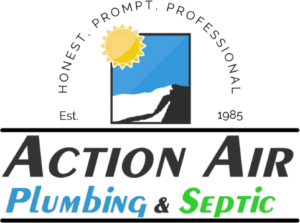Your septic system is an essential part of keeping your home running smoothly, but it often goes unnoticed until something goes wrong. By taking the right steps, you can significantly extend its lifespan and avoid costly repairs or replacements.
Action Air, Plumbing & Septic has been the trusted name in Midland since 1985, and we’re here to help you keep your septic system in top shape.
In this blog, we’ll share our top tips to maintain your septic system so you can protect your investment and ensure it operates efficiently for years to come.
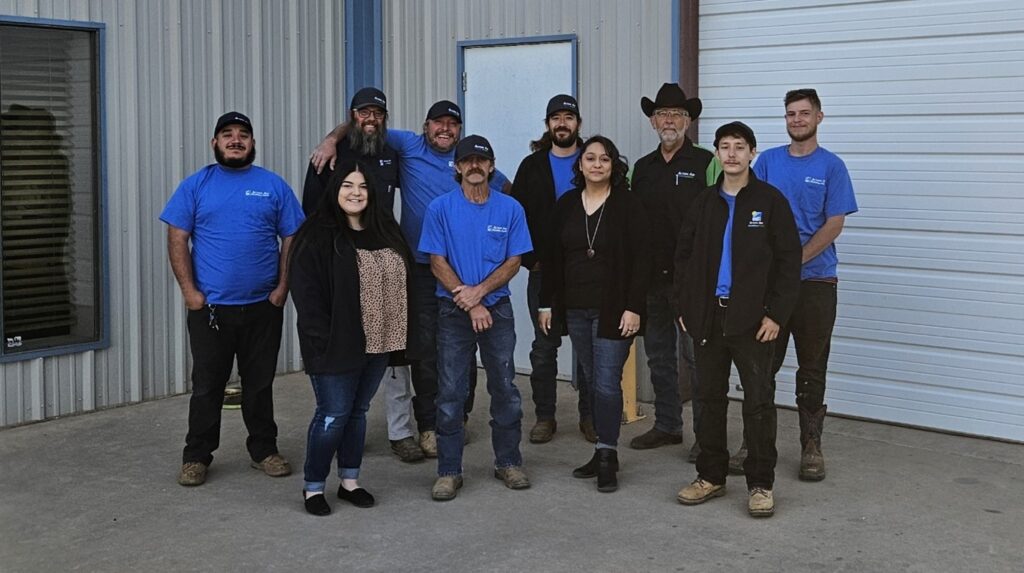
If you’re a homeowner with a septic system, you’re essentially responsible for your mini wastewater treatment plant. A septic system is an underground structure that treats household wastewater from toilets, sinks, showers, and laundry. It’s a vital component of homes not connected to municipal sewer lines.
Why should you care about maintaining your septic system? The answer is twofold: financial savings and environmental protection. A neglected system can fail prematurely, leading to costly repairs, potential health hazards, and contamination of groundwater and nearby waterways.
According to the Environmental Protection Agency (EPA), the average lifespan of a septic system is 15-40 years. However, with proper maintenance, this lifespan can be significantly extended, saving you thousands of dollars in replacement costs while safeguarding the environment.
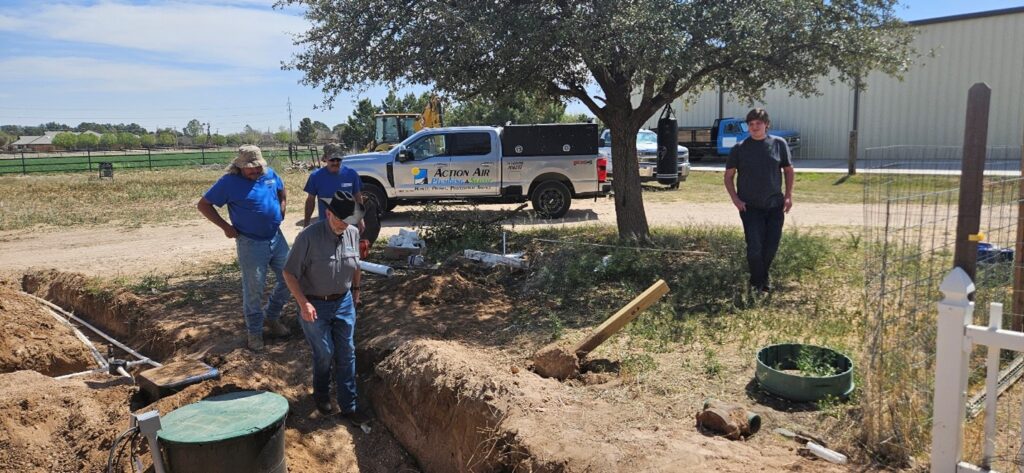
Understanding Your Septic System
To effectively maintain your septic system, it’s important to understand its key components and how they work together. The main parts of a typical system include:
- Septic tank: This is the underground container where wastewater flows from your home. It’s designed to separate solids from liquids, allowing the solids to settle at the bottom as sludge and the lighter materials to float as scum.
- Drain field (or leach field): This network of perforated pipes distributes the partially treated wastewater (effluent) from the tank into the surrounding soil. The soil further filters and treats the effluent before it reaches groundwater.
- Connecting pipes: These pipes carry wastewater from your home to the tank and effluent from the tank to the drain field.
The septic system functions as a natural biological treatment process. Naturally occurring bacteria in the tank break down the solid waste, reducing its volume. The effluent that flows to the drain field is much cleaner than the raw wastewater that enters the tank. The bacteria in the tank are essential for this process. They thrive in a balanced environment, but too much water or the introduction of harmful substances can disrupt their activity.
The EPA emphasizes the importance of mindful water usage and avoiding flushing items that can kill these beneficial bacteria.
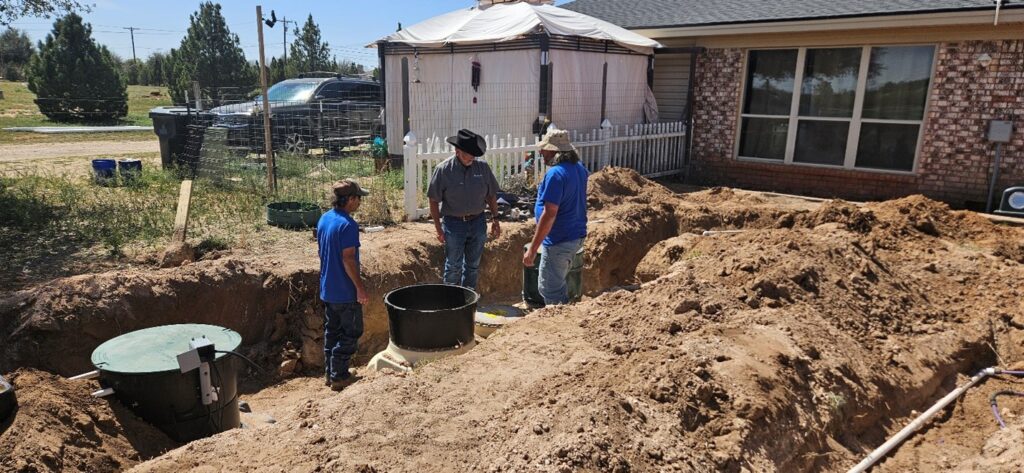
Here are the top 5 tips to extend the life of your septic system.
Tip #1 Regular Pumping and Inspection
The single most important maintenance task for your septic system is regular pumping. Over time, solids that aren’t broken down by bacteria accumulate in the tank as sludge and scum. As these layers thicken, the tank’s capacity to hold wastewater decreases. This can lead to backups in your home, slow drains, and, eventually, system failure, which can be a messy and expensive problem.
How often should you pump your septic tank? A general guideline is every 3-5 years, but the exact frequency depends on several factors, including the size of your household, the volume of wastewater generated, and the size of your tank. Larger households and those with smaller tanks will typically require more frequent pumping.
In addition to pumping, it’s crucial to have your septic system inspected regularly by a qualified professional. An inspection can identify potential problems early on, such as leaks, root intrusion, or malfunctioning components. The EPA recommends having your system inspected every 1-3 years. During the inspection, the inspector should measure the levels of scum and sludge in the tank to determine if pumping is necessary.
Give the professionals at Action Air Plumbing & Septic a call anytime to handle your septic needs – (432)620-8900.
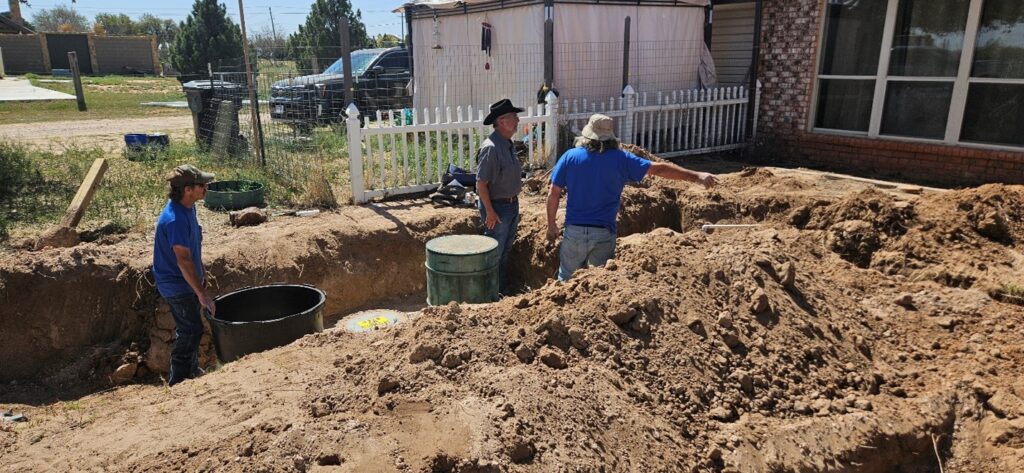
Tip #2 Mindful Water Usage
Excessive water use can overload your septic system, causing solids to flow into the drain field and potentially leading to clogs and backups. By conserving water, you reduce the burden on your system and extend its lifespan. Here are some practical tips to reduce water consumption and protect your septic system:
- Fix leaks promptly: A leaky faucet or running toilet can waste hundreds of gallons of water per day, putting unnecessary strain on your system.
- Spread out laundry loads: Instead of doing multiple loads of laundry in one day, spread them throughout the week. This gives your system time to treat the wastewater between loads.
- Use water-efficient appliances: High-efficiency washing machines and dishwashers use significantly less water than older models, reducing the load on your septic system.
- Take shorter showers: Showers account for significant household water use. By reducing shower time, you can save water and protect your system.
- Don’t let water run unnecessarily: Turn off the faucet while brushing your teeth, shaving, or washing dishes. This simple habit can save a surprising amount of water over time.
Research suggests that reducing water consumption can extend the system’s life by several years, resulting in substantial savings in the long run. The EPA also recommends balancing your water usage throughout the week to avoid overloading the system with large volumes of water at once. This gives the bacteria in the tank time to effectively treat the wastewater.
Tip #3 What NOT to Flush or Pour Down the Drain
To break down waste, your septic system depends on a precise balance of microorganisms or bacteria. Flushing or pouring inappropriate items down the drain can disrupt this balance, leading to clogs, backups, and costly repairs. Here are some common culprits to avoid:
- Non-biodegradable items: These items don’t break down easily and can accumulate in your tank and drain field, causing clogs and hindering the treatment process. Examples include flushable wipes (even those labeled as “septic safe”), feminine hygiene products (tampons, pads, liners), diapers, paper towels, and dental floss.
- Grease and fats: Cooking oils, grease, and food scraps can solidify in the tank and pipes, leading to blockages and backups. The bacteria in the tank also find these substances difficult to break down. Examples include cooking oils and grease, salad dressings, meat fats, and dairy products.
- Harsh chemicals: Drain cleaners, paint, pesticides, solvents, and other harsh chemicals can kill the beneficial bacteria in your septic tank, disrupting the treatment process. They can also contaminate groundwater and pose a risk to the environment.
- Cat litter: Most cat litter is not designed to break down in septic systems and can contribute to clogs and backups.
- Coffee grounds: While small amounts might be okay, excessive coffee grounds can accumulate in the tank and contribute to sludge buildup.
- Dental floss: Floss is not biodegradable and can tangle with other debris in the tank, potentially causing blockages.
Our team of professionals is here to answer any septic-related questions you may have. Give us a call anytime at (432)620-8900.
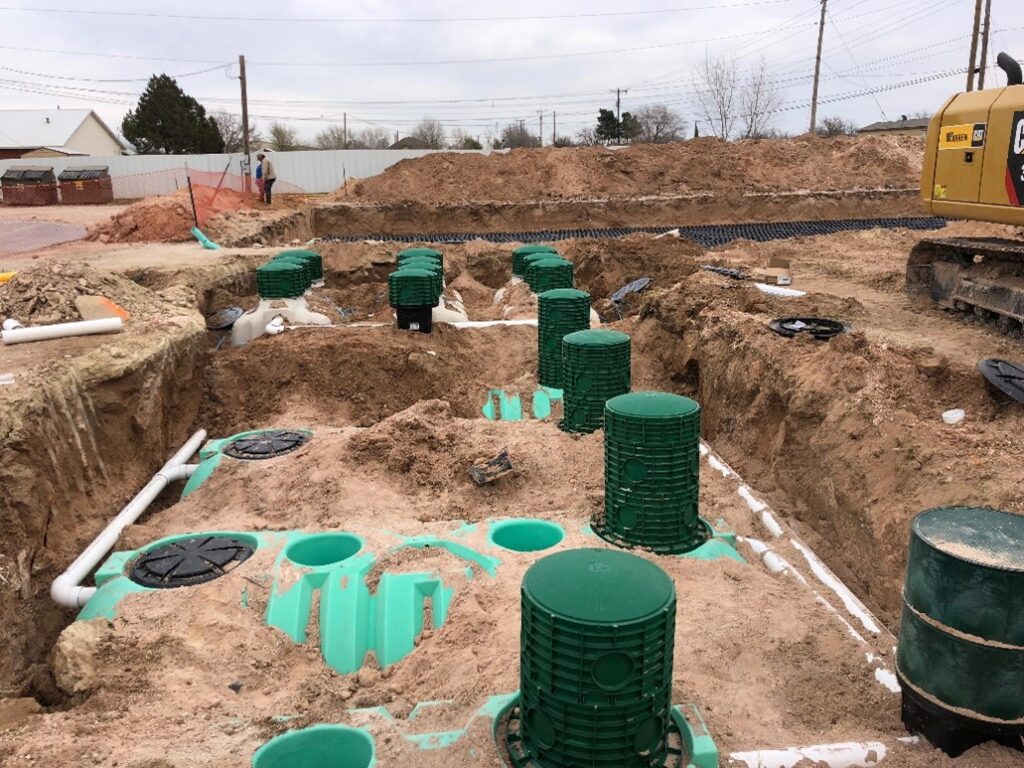
Tip #4 Protecting the Drain field
The drain field, also known as a leach field, is a critical component of your septic system. It acts as a natural filter, slowly releasing the partially treated wastewater (effluent) from the septic tank into the surrounding soil. The soil then filters the effluent further, removing harmful bacteria and pollutants before it reaches the groundwater.
Protecting your drain field is essential for maintaining a healthy septic system. Here’s how you can safeguard this crucial component:
- Don’t park or drive on it: The weight of vehicles can compact the soil in the drain field, reducing its ability to absorb and filter wastewater. This can lead to system backups and costly repairs.
- Plant trees a safe distance away: The roots of trees and shrubs can grow into the drain field pipes, causing damage and blockages. Consult with a landscaping professional to determine safe distances for planting vegetation near your drain field.
- Divert rainwater runoff: Excessive water from downspouts, roofs, or other surfaces can saturate the drain field, hindering its ability to treat wastewater effectively. Direct rainwater runoff away from the drain field area using gutters, downspout extensions, or French drains.
- Keep the area free of impermeable surfaces: Concrete, asphalt, and other impermeable surfaces prevent water from seeping into the ground, which is necessary for proper drain field function. Avoid paving over or building structures on top of the drain field area.
Tip #5 Be Cautious with Septic Tank Additives
Septic tank additives are widely marketed as a way to improve the performance and longevity of your septic system. They claim to do everything from breaking down solids more efficiently to reducing odors and preventing clogs. But do they really?
The answer is not so straightforward. The effectiveness of septic tank additives is a subject of debate, with some experts questioning their benefits and potential drawbacks.
Biological additives contain bacteria and enzymes that are intended to boost the existing bacterial population in the tank, aiding in the breakdown of waste. However, a healthy septic system already contains a diverse population of bacteria, and adding more may not necessarily improve its performance.
The EPA generally does not recommend the use of septic tank additives. They state that a properly maintained system with regular pumping and mindful use should function effectively without additives.
In some specific cases, such as when a septic system is new or has been stressed by overuse or the introduction of harmful substances, a biological additive containing bacteria and enzymes might help establish or restore the bacterial population. However, it’s crucial to consult with a septic professional before using any additives to ensure they are safe and appropriate for your system.
The Bottom Line
By following these simple yet effective tips, you can extend the life of your septic system and prevent unexpected issues. At Action Air, Plumbing & Septic, we’ve been Midland’s trusted experts since 1985, and we’re committed to helping you maintain a healthy, efficient system.
If you ever encounter problems or need professional guidance, don’t hesitate to reach out to our experienced team at (432)620-8900. We’re here to ensure your septic system continues to function smoothly, protecting your home and giving you peace of mind for years to come.

